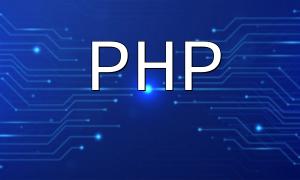In today's highly competitive internet environment, optimizing website performance is key to delivering a great user experience. For high-traffic and data-intensive PHP websites, effective performance strategies can significantly speed up response times and reduce server load. This article systematically introduces methods to enhance PHP website performance, supported by practical examples.
Caching is one of the most effective ways to boost performance by reducing database queries and redundant computations, thereby speeding up page responses. Common PHP caching methods include:
// Memcache caching
$cache = new Memcache();
$cache->connect('localhost', 11211);
// APC caching
apc_store('my_data', $data);
The database often becomes a performance bottleneck. Proper index design and using prepared statements can greatly improve query efficiency and enhance security:
// Create index
$query = "CREATE INDEX my_index ON my_table (my_column)";
// Use prepared statements to prevent SQL injection and improve efficiency
$stmt = $mysqli->prepare("SELECT * FROM my_table WHERE my_column = ?");
$stmt->bind_param('s', $my_value);
$stmt->execute();
Proper server configuration is crucial for PHP application performance. Recommended settings include:
// Optimize PHP configuration
ini_set('max_execution_time', 180); // Maximum script execution time
ini_set('memory_limit', '128M'); // Maximum memory allocation for scripts
Asynchronous processing can prevent long-running tasks from blocking page loads, improving user experience. PHP ecosystems offer libraries like Symfony Messenger for asynchronous task management:
// Using Symfony Messenger to send emails asynchronously
use Symfony\Component\Messenger\MessageBusInterface;
$message = new MailMessage('user@example.com', 'Subject', 'Content');
$bus->dispatch($message);
Optimizing website content reduces bandwidth usage and shortens load times. Common techniques include image compression and HTML output compression:
// Compress images
getimagesize($image_path); // Get image dimensions
compress_image($image_path, 'output.jpg', 60);
// Compress HTML output
ob_start('ob_gzhandler');
Here is a performance optimization example for a large news website:
Through these comprehensive optimization efforts, the website’s performance was significantly enhanced, resulting in a better user experience.









